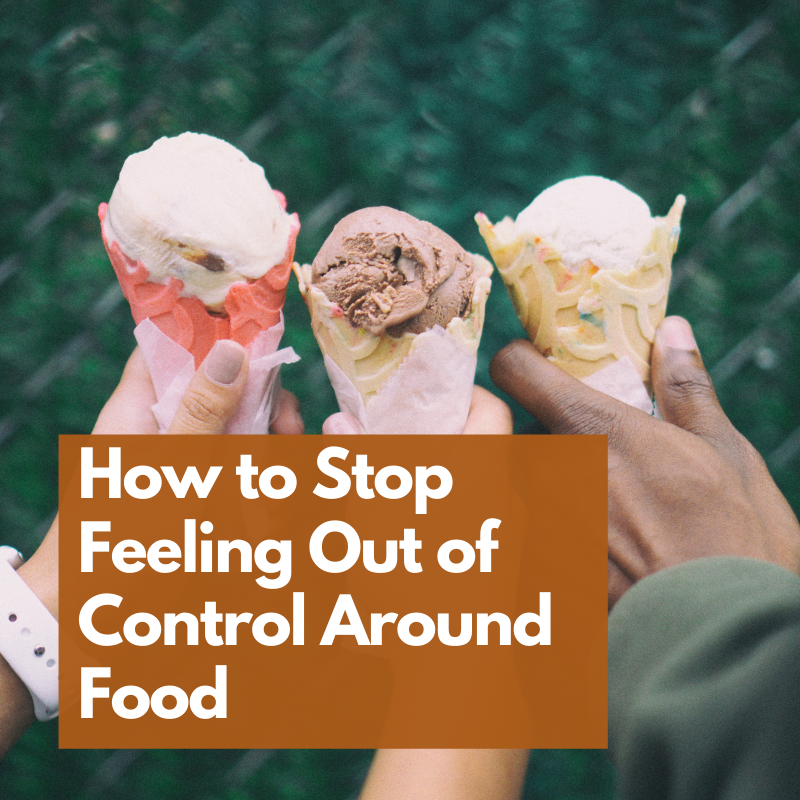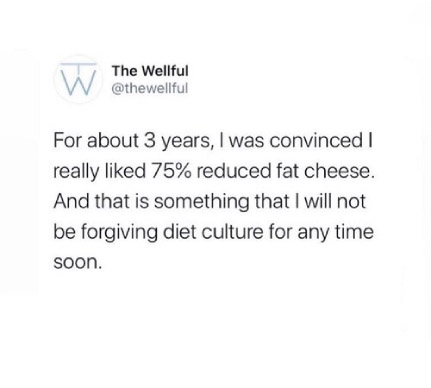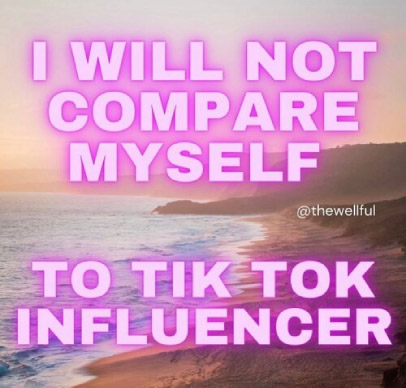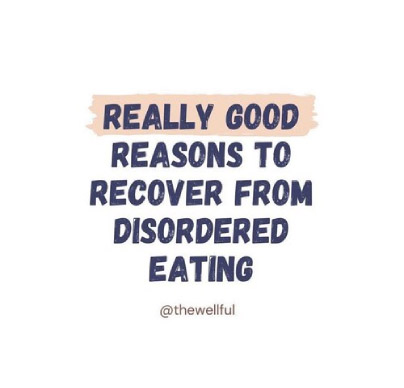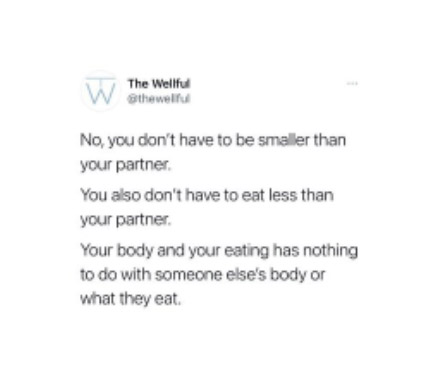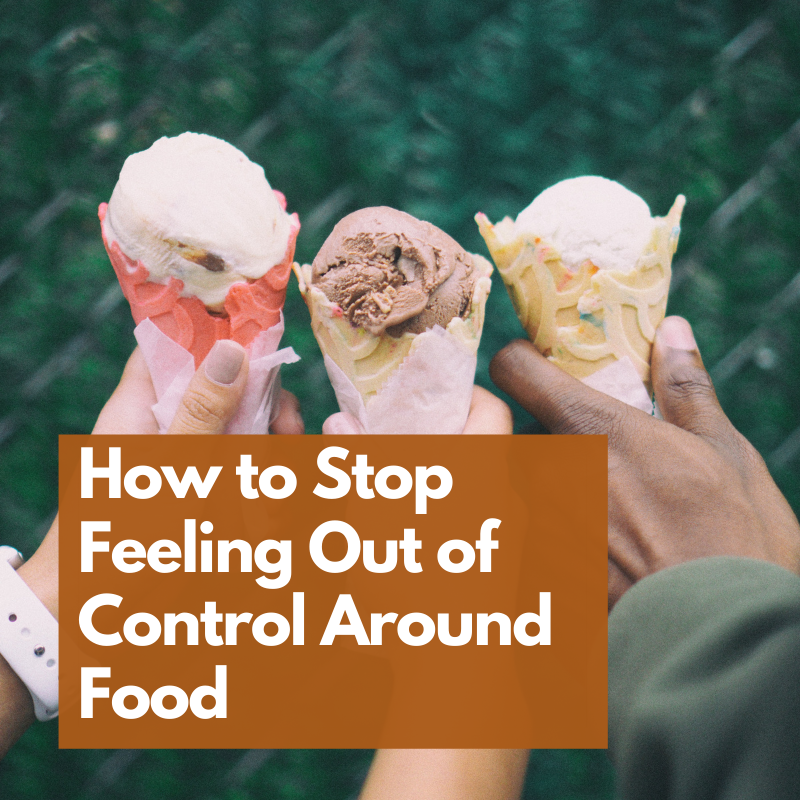
As we’re coming up on Halloween, I can think of so many conversations (and I’m sure you can too!) that went something like “I can’t keep this food in the house!” “Get that candy away from me” “I can’t stop eating candy once I start. I only keep it around for a few days a year, then it’s out of the house.”
This makes many of us feel like we need strict rules around candy, favorite foods, or food we feel out of control around. Those rules can SEEM like they give us control over food, but really they reinforce the binge-restrict, black & white mentality around food, and it backfires. Think about the times when you have had those strict rules around food and eating in the past, how long was that sustainable? How did you feel when you did have access to those foods? Did you ever feel guilt, shame or negative feelings come up when you did have those foods?
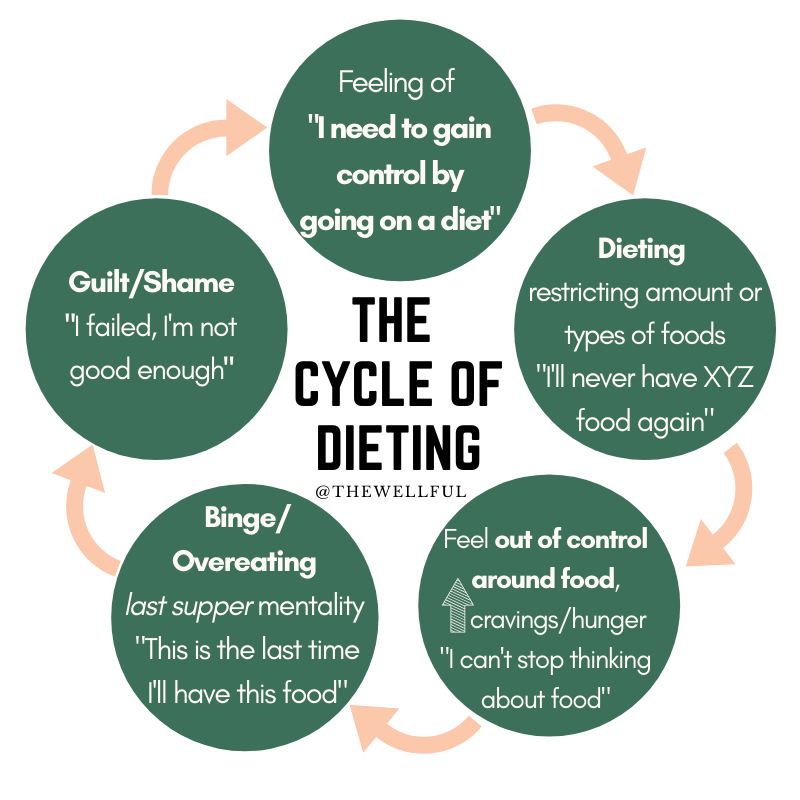
Any kind of restriction, mental – like “diet starts tomorrow” – can set off this black & white, binge-restrict response. By changing this pattern of eating, can help you neutralize foods so that you can ditch the food guilt, rules and ‘diet starts tomorrow’ mentality.
Scarcity vs. Abundance
Think about in the beginning of the COVID pandemic, when there was a supposed threat of stores running out of toilet paper. We saw on the news people taking rolls and rolls of toilet paper out of fear that there might not be enough in the future. The reaction of stocking up on toilet paper ‘just in case’ is similar to how our bodies react and feel when we mentally or physically restrict foods or say ‘this is the last time I’ll let myself have this food’. The way we respond to scarcity is by trying to protect ourselves and have enough to get through that time of limited access. The way we combat scarcity is by building up trust with our bodies and selves that we will continue to provide enough food, regularly by creating an environment of abundance.
Examples of scarcity:
-
not keeping certain foods (like cereals, ice cream, snacks, candy, favorite foods or ‘trigger’ foods in the house
-
only allowing yourself to eat certain foods on specific occasions (holidays, parties, gatherings, etc)
-
letting yourself have ‘no rules’ on the weekends or a ‘cheat’ day and then ‘being good’ during the week
-
having food rules, cutting out certain foods or food groups
-
not having access to enough food to eat
Examples of abundance:
-
a mindset and environment that allows for all foods to fit
-
keeping foods you like around the house, as able to
-
giving yourself permission to choose satisfying, enjoyable, foods that you like
-
knowing that your access to food is not conditional – you can eat this food today, tomorrow, the next day, etc
How to move from scarcity to abundance
1. Make sure you are eating enough variety of food regularly, throughout the day. If we aren’t eating enough, you are going to be feeling out of control – your body is trying to ensure you have enough to eat.
2. Neutralize food – ditch the labels: ‘good’ ‘bad’ ‘guilty’ ‘healthy’ or ‘unhealthy’ – food has no moral value.
3. Keep foods that are normally ‘off-limits’ to you in the house and available to you, and allow yourself to eat them! This might mean keeping ‘off-limits’ foods stocked in the house and letting yourself have it whenever you crave it.
If every time you allow yourself to have candy you binge it, swear to go on a diet tomorrow and don’t allow it in the house again for a few months – it makes sense that you would have a strong narrative that having candy in the house = bingeing. By creating lots of opportunities to have that food (without the threat of a diet or compensating tomorrow) you let yourself have more experiences and more data points to add to your narrative. Sometimes you might eat a comfortable amount of candy, sometimes you might not be in the mood for candy, sometimes you might eat a lot of candy. This variety of experiences is normal and it helps add nuance to the narrarive of ‘every time I eat candy, I binge.’ Instead, you’ll have lots of experiences to look back on and see that when you allow yourself permission to eat foods (all foods), it doesn’t always fall into those extremes. It makes room for pleasurable, pleasant eating, too!
In the beginning, you might want this food often and it might taste really, really amazing. Eventually, as you continue to allow yourself to have this food, it might still taste amazing to you, but since it’s a food that’s always available, it will lose some of its charge so that you can start to choose to have it in a satisfying amount, or not, without guilt, or feeling out of control.
Allowing foods to be available without the threat of being restricted again, tomorrow, or next Monday, allows you to rebuild trust within your body and eventually helps you to notice and navigate what hunger, fullness and different foods feel like to you.
The myth is that we need more control over our body and what we eat. The truth is that we need more trust that our body doesn’t need to be tricked.
If you’re ready to make peace with food and your body, book a discovery call to get more started today!
Register for our webinar! November 8th 6pm PT/9pm ET – Raising Kids/Teens To Have A Positive Relationship With Food and Their Body. This class is a good fit for anyone who wants to pass on a healthier relationship with food and their body to young people. We’ll be talking to parents, future parents, siblings, aunts/uncles, teachers, dietitians, therapists, school counselors and coaches. I hope to see you there!

